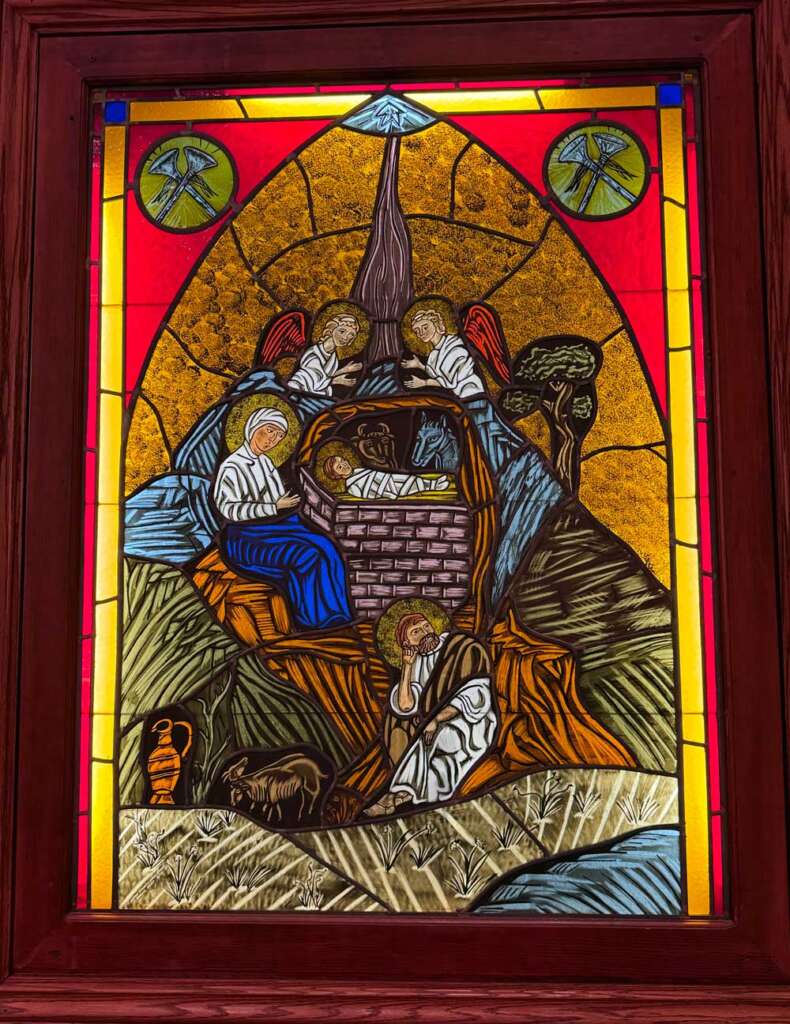Orthodox Christianity: A Brief Overview

- By the early 4th Century A.D., there were five primary Churches (also called “Seats” or “Sees” of the Church): the Church of Jerusalem, the Church of Antioch, the Church of Rome, the Church of Alexandria, and the Church of Constantinople. After the Great Schism of 1054, the Church of Rome was part of this communion no longer. The four Eastern Churches remained in communion, and are known today as the Eastern Orthodox Church.
- Our priest at St. Mary parish, Fr. Don Hock, was ordained in 1987 by Metropolitan Philip of the Antiochian Archdiocese of North America; our Metropolitan was appointed in 1966 by Theodosius the 6th, the 164th Patriarch of the Church of Antioch.
- The Orthodox Church often refers to itself as “The Church of the Seven Councils.” In response to challenges from a number of heretical movements, Christianity clarified and more precisely articulated its theology in the seven great Ecumenical Councils. The first took place at Nicaea (called “İznik” in modern-day Turkey) in 325 and the last, also at Nicaea, in 787. Christian Orthodoxy understands the theology of the Councils to constitute no substantive change whatsoever to the beliefs of the very early Church — a claim that is strongly supported by study of the writings of St. Irenaeus of Lyon, who lived during the 100’s A.D. (he was born in modern-day Turkey in the second generation after the Apostles) and was the first Christian to write formal theology. The Orthodox Church maintains, today, exactly the same theology and worship practices as the Church of the “Conciliar Age.”
- Orthodox worship is our direct and unaltered inheritance from Apostolic times. The Church today celebrates the Liturgy of St. John Chrysostom, unchanged since the time it was written at around A.D. 400. St. John’s liturgy itself was only an updating and abridgement of the Liturgy of St. James — the half-brother of Jesus and the first bishop of the first church in Jerusalem — who devised the service by incorporating Christian themes into the basic forms of Jewish worship. The ancient and timeless beauty of Byzantine chant likewise continues to be an essential component of our worship, especially in the Middle Eastern and Greek Orthodox traditions.
- The most important difference between Eastern and Western Christianity is in their respective answers to the question: what is salvation? The Eastern doctrine of salvation is called “theosis.” The doctrine of theosis constitutes the original theology of the early Church, and the way Scripture and Tradition were interpreted and understood through the first thousand years of Christian history. The Western doctrine of salvation — and the basis of both the Catholic and Protestant teachings on the subject — is called “satisfactionism,” and was first proposed by Anselm of Canterbury in 1098.
- Orthodoxy and Catholicism define “catholicity” differently. Roman Catholicism understands the word “catholic” to mean “universal,” and considers a local parish or congregation to be part of the universal church if it is in communion with the Bishop of Rome. Eastern Orthodoxy understands the word to mean “according to the whole,” and considers a parish to be catholic by virtue of true celebration of the Eucharist with the blessing of its own bishop. It is the presence of Christ in the miracle of the Eucharist within each local church that makes it catholic.
- Christian Orthodoxy considers authority in the Church to derive directly from God the Holy Spirit, and not from any intermediary human agency within the Church. To cite Prokurat, Golitzin, and Peterson in The Historical Dictionary of the Orthodox Church, “The question of authority, and with it ‘infallibility,’ in the Orthodox Church is primarily dependent on the Holy Spirit, or pneumatology, and not upon human agency. Thus, the way the question is handled in the East is different from its treatment in the West. When the Holy Spirit is recognized as the ultimate source of authority, claims to inerrant authority for the hierarchy (e.g. ‘papal infallibility’) or for Scripture (e.g. sola Scriptura) can be relegated to high-level political posturing; for the claims are actually for a particular hierarch’s interpretation of the matter, and not all hierarchs’ universal understanding, or a particular group’s interpretation of Scripture, and not how Scripture has been understood by the Church throughout the ages. The Orthodox generally consider the question as posed in the West in the last half millennium, with due respect to Roman Catholic and Protestant theologians, to be a misguided question predicated on unfortunate political developments, both before and after the Reformation.”
- The Orthodox Church sets the bar high for its faithful with the disciplines of prayer, fasting, and almsgiving she requires of us. These disciplines are not to pacify some falsely imagined divine anger or to earn us God’s favor, but are rather for our own spiritual therapy and healing. By the grace of God the Holy Spirit, we strive throughout our lives and over many years to develop and perfect the disciplines of the spiritual life.
